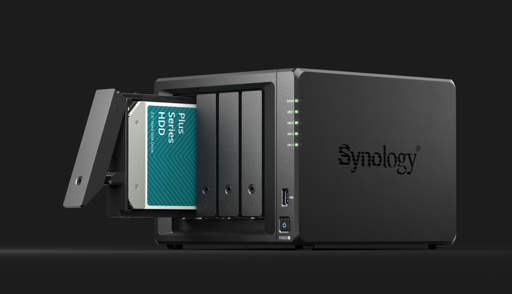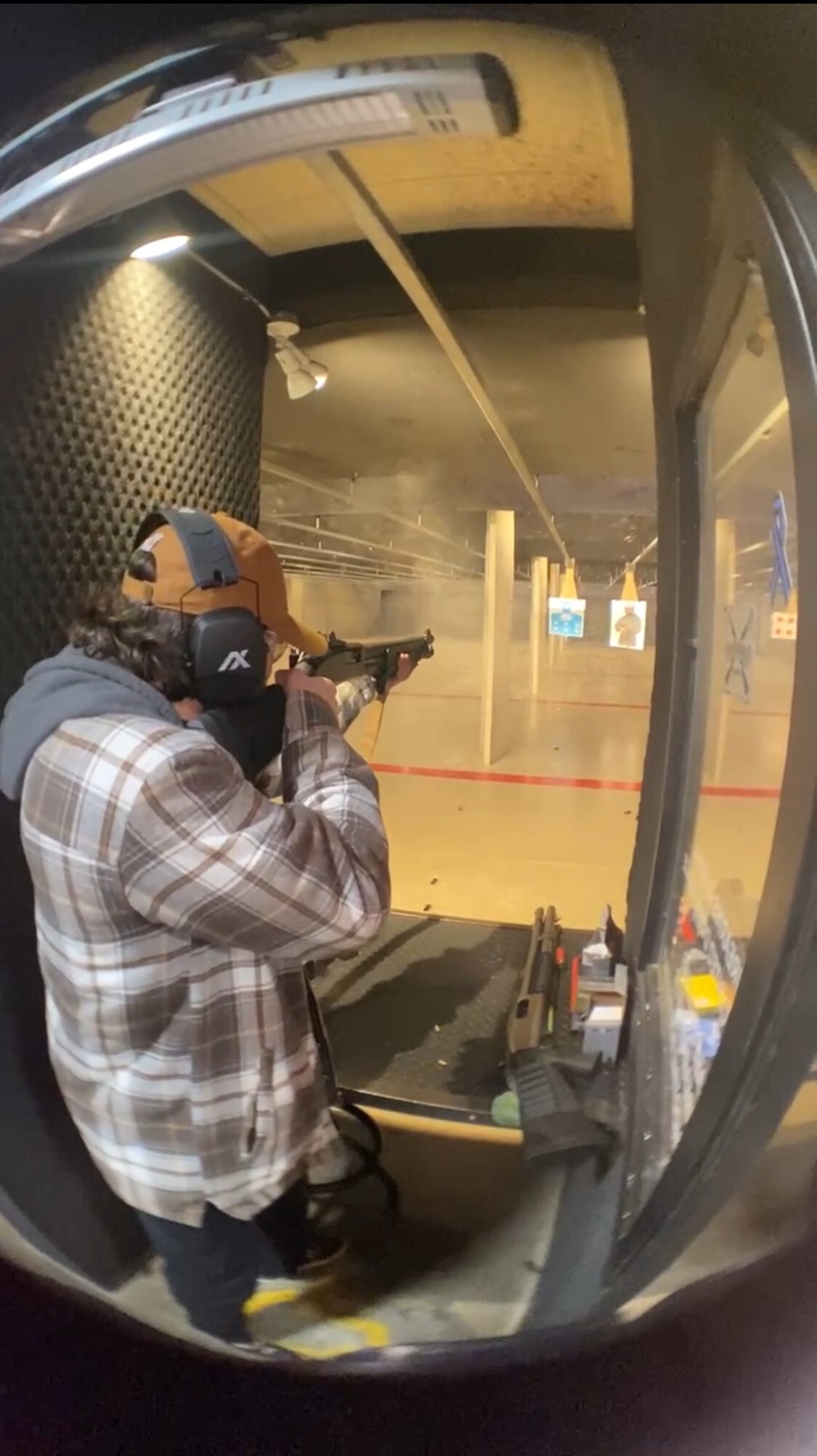Synology’s telegraphed moves toward a contained ecosystem and seemingly vertical integration are certain to rankle some of its biggest fans, who likely enjoy doing their own system building, shopping, and assembly for the perfect amount of storage. “Pro-sumers,” homelab enthusiasts, and those with just a lot of stuff to store at home, or in a small business, previously had a good reason to buy one Synology device every so many years, then stick into them whatever drives they happened to have or acquired at their desired prices. Synology’s stated needs for efficient support of drive arrays may be more defensible at the enterprise level, but as it gets closer to the home level, it suggests a different kind of optimization.
Well, I had been considering one, but I guess not
I own a Synology NAS. It’ll be the first and last one I buy. When I need an upgrade I’ll go back to building my own again.
I was thinking of buying a Synology system. I was actually looking at prices this past week.
That being said, I’ve got an old 2019 desktop running Windows that is coming to the end of its support, that I was considering making a Linux machine.
How complex is making a roll-your-own NAS?
I have mini-ITX board in a mini case. 4 bays, 16 GB RAM of DDR3-L and a slow but very low TDP CPU. This thing is very low power but it’s on 24/7.
Runs home assistant with zigbee, rtl433 and whatever it detects over the network. A few older game servers (minecraft, minetest/luanti, quake 2), miniDLNA, … Arch Linux, so rolling release and always up to date with the latest versions.
Served me greatly and I haven’t upgraded because it still does what I want and I can’t find any modern CPU with a TDP this low.
It’s not too complicated but you don’t get some things for free like with Synology. It require work to setup scripts for offsite backup for example whereas Synology has a backup app with a UI.
For storage, I used to run ZFS in a raidZ2 configuration. If you do this then I suggest having a cron job running a script that can alert you if the pool is unhealthy. This is again something that Synology does for free.
You could also look up trueNAS core and see if that’s something that fits for you.
Guess I am going to be taking my “pro-sumer” dollars elsewhere.
Plllbbbbbb @ Synology - I just got one of these and added 2x 4TB ssds this week. I’ll eventually add 2x more but for now I’m set: https://www.gmktec.com/products/intel-twin-lake-n150-dual-system-4-bay-nas-mini-pc-nucbox-g9
Fingers crossed that it doesn’t blow up or crap out.
Jeff Geerling: https://www.youtube.com/watch?v=M_Ft8OAPQ3g
Absolutely wild timing on this video. I built mine on Wednesday. I installed OpenMediaVault on mine. The one I bought was $30 cheaper to not have that Win 11 1TB drive. I would have wiped that anyway, and have no use for a 1TB drive.
I started mine off with heatsinks on my SSDs. Those are running at 53 C since being powered up on Wednesday after work. I didn’t go crazy with the heatsinks that pop out of the bottom or anything though, his were pretty funny to see.


These posts are absolutely perfect timing for me. I’m looking to start replacing an old Synology Diskstation I bought back in 2016 that has worked for me flawlessly. I really appreciate everyone sharing their details and experiences here.
Tldw: get some thin heat syncs 75-80c temps on the ssds
Cut some holes in the plate covering them
This is why I chose an ASUS nuc + external bay-storage for my home networking needs, felt like NAS would be a limiting factor.
So you built your own NAS, then. NAS is just an acronym, “Network Attached Storage”. Not a singular line of products.
That said - I also feel the same way about Synology and the other “all-in-one NAS” brands. Expensive for what they are, which is essentially an incredibly cheap PC with a built in toaster. I built my NAS out of a 2014 Mac Mini (running OMV) and a Sabrent USB-C 4-bay drive dock, and even full of WD Reds, that entire rig is literally half the price of a DS920+. And more powerful.
Why would anyone even use Synology?
Just buy a pc with big hard drives
My personal reasons for buying a synology were ease of use, reliability and power usage.
I had previously played around with TrueNAS in a VM using an external USB HDD Enclosure for storage and I just wanted something reliable. With TrueNAS I often ran into issues with user permissions one way or another and the Synology software is incredibly easy to use and foolproof.
Hi. I’d like the word “pro-sumer” banned. In perpetuity.
Why?
Are we overreacting? Hasn’t Synology always had a list of “certified” drives for their NAS’, which end up being the same HDDs we would tend to use anyway?
I can understand that they don’t want people using any garbage storage drives, which could increase failure and make Synology NAS’ look unreliable.
Unless something has changed, this is how they’ve always done it, just like how every laptop manufacturer will say which RAM and storage works best (for reliability and performance) on their machines.
They’re disabling features
Synology, maker of network-attached storage (NAS) devices, will seemingly remove advanced features from its Plus devices that are not using hard drives provided by, or certified by, Synology itself, starting with its 2025 lineup.
What you might lose from using non-Synology-approved hard drives could include pool creation and support for any issues. De-duplication, lifespan analysis, and automatic HDD firmware updates could also disappear on non-approved drives, Synology’s press release suggests.
Yes, but is this them being assholes, or them wanting to make sure that users aren’t making their system unreliable? I think there would be a huge distinction there.
For example, say a user wanted to create a cache drive using an SSD. But because the user doesn’t know better, they buy the cheapest crap they can find, install it, and set up caching. But because they’re using cheap shit, the drive is slow and the user reports poor performance, system hangups, and other instability.
Wouldn’t it be in Synology’s best interest to say “here’s a list of drives we know will give you the best experience.”?
Now, Synology has already done that, but users are ignoring it and continue to use poor storage drives expecting to use pretty sophisticated features. What now? Well, Synology disables those features.
For example:
De-duplication, lifespan analysis, and automatic HDD firmware updates could also disappear on non-approved drives
Um, yeah. That makes sense. If a shitty hard drive can’t reliably get firmware updates through the NAS, why on earth would they want to keep that option enabled? Same with lifespan analysis. If a crappy drive isn’t using modern standards and protocols for measuring and logging errors and performance data, Synology really can’t “enable” this to work, can they?
That’s what I think is happening. Although, this could be just greed, too. I don’t think there’s any real problem for most users, unless they say that we can’t use fairly common, high-quality NAS drives from Seagate or WD and must use their own branded drives. I’d have a huge problem with that.
I think it’s a mix of the two. There are legitimate reasons, and commercial reasons
Synology does not manufacture its own hard drives but instead certifies and rebrands drives from Toshiba and Seagate, leaving out only Western Digital among the world’s largest manufacturers.
Isn’t synology basically a Linux system with lots of slots for storage? Can’t you just… buy a pi?
In regards to performance? Probably yes.
In regards to IO connectivity? It depends.
Maybe with something like a PCIe to SAS/SATA backplane?
i was considering these devices for my home media set up, now im just building my own NAS with some old parts i had laying around and using open source software.
fuck this shit.
Remember, there’s absolutely nothing wrong with buying a used 7th gen Intel PC and filling that with [insert drive of choice]. An i7-7700T is still more powerful than even the newer Synology units.
Is the main appeal of prebuilt NAS cases the aesthetics and the reduction of DIY concerns?
Because they seem to me like overpriced and underpowered computers. Most tech-oriented folks I know have more powerful PCs in a closet somewhere that they could easily convert into a NAS
Reliability. We’ve put them in small businesses and they do their job very well VS a frankenpc NAS.
I have 2 8-Bay devices at home and they are so good for what they are. Silent, low power, bit of fancy utility for those that like it but reliable and quality. They age very well.
I also use the surveillance station with my cameras which all connected ootb fine. (mix of brands)
I think the biggest draw to Synology now is the ultra low power consumption. Yeah, you could totally repurpose an old PC, but it’s crazy to run 500W perpetually. The reason they use old Celeron processors is the low power draw. In time, hopefully, RISC V can produce some low cost systems that would slot in well for this use case.
You are paying for reasonably well polished software, which for non technical people makes them a very good choice.
They have one click module installs for a lot of the things that self hosted people would want to run. If you want Plex, a onedrive clone, photo sync on your phone, etc just click a button and they handle installing and most of the maintenance of running that software for you. Obviously these are available on other open source NAS appliances now too so this isn’t much of a differnentiator for them anymore, but they were one of the first to do this.
I use them for their NVR which there are open source alternatives for but they aren’t nearly as polished, user friendly, or feature rich.
Their backup solution is also reasonably good for some home labs and small business use cases. If you have a VMware lab at home for instance it can connect to your vCenter and it do incremental backups of your VMs. There is an agent for Windows machines as well so you can keep laptops/desktops backed up.
For businesses there are backup options for Office365/Google Workspace where it can keep backups of your email/calendar/onedrive/SharePoint/etc. So there are a lot of capabilities there that aren’t really well covered with open source tools right now.
I run my own built NAS for mass storage because anything over two drives is way too expensive from Synology and I specifically wanted ZFS, but the two drive units were priced low enough to buy just for the software. If you want a set and forget NAS they were a pretty good solution.
If their drives are reasonably priced maybe they will still be an okay choice for some people, but we all know the point of this is for them to make more money so that is unlikely. There are alternatives like Qnap, but unless you specifically need one of their software components either build it yourself or grab one of the open source NAS distros.
I see! Thanks so much for the thoughtful response definitely seems like there’s a use case for people who might be more creatives with a need for storage rather than self-hosting enthusiasts who want to mess around in a homelab.
The prices are still a bit eye watering but you pay for software support for sure.
I am a tech oriented person, I work in IT, and a Syno ticks the boxes in many respects.
-
Low power draw. Power efficiency is very important to me, especially for something that runs 24/7. I don’t know how efficient self-build options are these days, but 10 years ago I couldn’t get close to the efficiency of a good NAS.
-
Set and forget. I maintain enough systems at work so I don’t really want to spend all of my free time maintaining my own. A Syno “just works”, it can run for months or years without a reboot (and when it does need one, it does it by itself overnight), and I can easily upgrade or swap a dead drive in a couple of minutes. When the entire NAS dies I can stick the drives in a new one and be up and running almost instantly.
-
Size and noise. I don’t have a massive house, so I need something that can sit on a shelf and be unobtrusive. In our last house it was literally sat in the living room, spinning drives constantly, and nobody was bothered by it.
The Syno I have is plenty good enough to run a bunch of Docker containers and a few VMs for all of my self hosted stuff, and it just does the job efficiently, quietly, and without complaining or needing constant maintenance.
I don’t like this creep towards requiring branded drives and memory, though I’m pretty sure it’s not legal in the EU. Regardless there are ways around it.
One question in regards to your noise comment: What drives are you running? I have a synology with 2 toshiba mg08 16tb drives and those things are unbearably loud when reading or writing. A lot of that obviously comes down to the drives themselves but I also kind of blame the plastic chassis for probably resonating with the noise and not being better at soundproofing.
We use DS223j’s at work for our clients as backup targets.
Fast to set up and configure from a total beginner up to experienced IT personal.
And I set up NFS, Samba and ACLs in my own Debian NAS.
It aint so sleek and braindead-simple like a Syno does it.Yeah I agree, I set up a synology as a little summer project and I didn’t want to go out and source parts and put a nas Linux distro to do everything myself. Synology is newbie friendly and kind of holds your hand to do everything even dynamic dns. However, if I were to get another nas, I would be more comfortable setting it up myself.
-
1U form factor, 4 disks, using 7w whilst idle, decent enough CPU to run 1 Linux VM
I bought an RS822+ for as a veeam Linux repo.
I can’t make that myself, or I don’t know how.
It was stupid expensive and if it wasn’t the business paying I would have probably put a bunch of disks into an HP elite desk.
Just lol at Synology trying to do an Nvidia
Synology is like Ubiquity in the self-hosted community: sure it’s self-hosted, but it’s definitely not yours. End of the day you get to deal with their decisions.
Terramaster lets you run your own OS on their machine. That’s basically what a homelabber wants: a good chassis and components. I couldn’t see a reason to buy a Synology after Terramaster and Ugreen started ramping out their product lines which let you run whatever OS you wanted. Synology at this point is for people who either don’t know what they’re doing or want to remain hands-off with storage management (which is valid; you don’t want to do more work when you get home for work). Unfortunately, such customers are now out in the lurch, so TrueNAS or trust some other company to hold your data safe.
Lol! Not like uGreen put any roadblocks to running your own OS (like disabling the watch dog feature in the BIOS and some other setting to enable custom boot).
And you don’t have any fan control on their NAS. Either you estimate and configure correcrly or you need to schedule downtime.
Actual servers let you live tune (some of) the power settings. Synology supports changing the fan profile in the live OS.Damn I was really happy for ugreen, terrormaster it is then.
They should be careful, they’re just selling small form factor computers with removable drive bays. Standing up and unraid or a true Naz isn’t all that difficult. And then there’s plenty of competition out there ready and willing to eat their lunch.
I was looking at simple 2 bay home NAS and Synology was - quite logically - one of the contenders. Now I’m glad I ordered differently. Went with Asustor AS5402, which might be not as polished package as a Synology option, but they’re very open about it and say it’s just regular PC so you can instal e.g. TrueNAS if you want. This openness convinced me.









